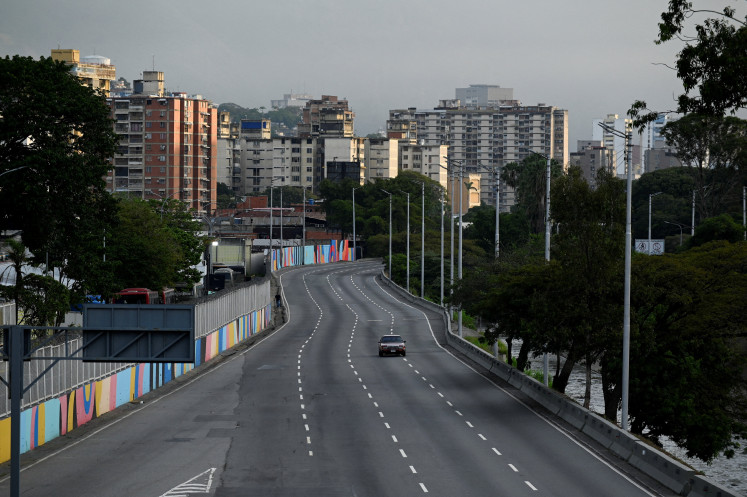Popular Reads
Top Results
Can't find what you're looking for?
View all search resultsPopular Reads
Top Results
Can't find what you're looking for?
View all search resultsSimulation to ensure flu pandemic readiness
Indonesia is set to conduct a two-day influenza pandemic simulation this month in certain areas of Jakarta’s neighboring province of Banten in a bid to ensure preparedness for such a situation, if it were to arise in the future
Change text size
Gift Premium Articles
to Anyone
I
ndonesia is set to conduct a two-day influenza pandemic simulation this month in certain areas of Jakarta’s neighboring province of Banten in a bid to ensure preparedness for such a situation, if it were to arise in the future.
Scheduled for Sept. 19 to 20, the simulation will be held in various locations designated as pandemic epicenters in Tangerang, where the government has carried out an influenza control project for the last 10 years after the discovery of H5N1 avian influenza, commonly known as bird flu, in the region in 2005, and in South Tangerang, which was separated from Tangerang regency in 2008.
A pandemic epicenter is a location where a communicable disease is first detected that has the potential to spread among humans.
In South Tangerang, the simulated influenza outbreak will take place in six locations: Setu subdistrict and Setu public health center; BSD City’s Eka Hospital and Modern Market; the Center for Science and Technology Research (Puspiptek) complex and the National Nuclear Energy Agency (Batan) compound.
While three places in Tangerang, namely Soekarno-Hatta International Airport, Tangerang Municipality Public Hospital and Merak Harbor, which connects Java and Sumatra, will also hold similar simulations.
The rationale for holding the simulation, set to be participated in by citizens and government officials, was because influenza pandemics were “unpredictable but could happen in the future,” said Wiendra Waworuntu, Health Ministry’s director for direct communicable disease prevention and control.
“This simulation aims to examine the response of people and authorities when an influenza outbreak occurs,” Wiendra told a news conference on Wednesday. “It [influenza pandemics] can happen at any time.”
The world has seen a number of influenza outbreaks, such as the Spanish flu in 1918 that caused around 40 to 50 million deaths, the Asian flu in 1957 that took between 1 to 4 million lives and the bird flu that, as of June 2017, had claimed 453 lives from 859 reported cases.
In Indonesia, the first human case of bird flu, spread by the H5N1 virus, was detected in 2005, with 199 cases having been reported as of 2017 in at least 15 provinces. There was one fatality at Sanglah Hospital in Denpasar, Bali this month, which officials claimed was a “probable case” of bird flu.
“The H5N1 virus was detected in the patient,” said Wiendra, adding, however, that it could not be confirmed whether it was the cause of death as the patient had died before the final confirmation test was conducted.
Some 500 observers from global organizations, such as the World Health Organization (WHO), are scheduled to monitor the Rp 4 billion program, which consists of three types of activity: quick response, disease mitigation and finalization of pandemic mitigation.
The quick response phase involves activities such as early detection of avian flu contagions and the announcement of emergency status by regional heads; while the mitigation phase comprises actions such as the closure of public facilities and the establishment of emergency hospitals, among other activities.
The upcoming simulation will be the third conducted in Indonesia after those held in 2008 in Dangin Tukadaya subdistrict in Bali and in 2009 in Kassi-kassi and Bonto Makio subdistricts in South Sulawesi.
Kwang Il Rim, WHO official for outbreaks and emergencies, who attended Wednesday’s briefing, said the simulation was a sign of Indonesia’s seriousness in dealing with possible influenza pandemics, and hoped other countries would also follow suit.










